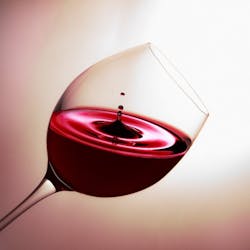California Imposes First Statewide Rules for Winery Wastewater
Hundreds of California wineries will be governed by statewide wastewater processing rules for the first time.
The move toward a statewide regulatory framework is a five-year effort and was finalized this week by the State Water Resources Control Board. The board approved an order setting up guidelines for wastewater processing at most of the more than 3,600 bonded wineries in the state, reported the North Bay Business Journal.
The new order promises to bring at least 1,500 of those wineries into a regulatory framework for wastewater disposal for the first time. The order also provides flexibility for how, and when, said wineries will be subject to rules meant to safeguard waterways and groundwater from harmful contaminants.
The order increases reporting requirements and caps the amount of processed water wineries can dispose of through land application and subsurface disposal. The order also specifies requirements for water treatment systems and ponds, requiring extensive groundwater monitoring for the state’s largest wineries, according to the North Bay Business Journal.
According to Rose Jimenez, spokeswoman for Sonoma County Vintners, the primary trade group for local winemakers, the majority of the county’s 500 wineries will fall under the new state regulations.
State water regulators provided a three-year window for permitting and another five years for wineries to come into compliance with the order.
589 of the state’s 3,612 bonded wineries have permits or waivers to dispose of winery wastewater.
The new order groups wineries into four tiers based on size, exempting the roughly 1,500 in the smallest tier, which are wineries that produce less than 10,000 gallons of processed water per year.
State Sen. Bill Dodd, D-Napa, sent a letter seeking balance in the coming order, reported the North Bay Business Journal. Dodd cautioned that the order could have more severe impacts on smaller wineries, raising concerns about the cost for wineries to comply with the requirements.
